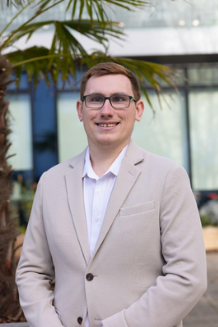
Frustration and confusion abound as INC 5.2 resorts to informal and closed door sessions to force progress. Sam Winton captures the mood at negotiations in Geneva, where small victories afford scant solace. Aptly, one such victory is achieving agreement on the wording of the article describing how nations can withdraw from the global plastics treaty, the existence of which now seems as distant a prospect as ever.
‘In spirit of compromise and consensus and understanding that nothing is agreed until everything is agreed, we agree to drop our proposal’. These words met with warm applause in Tuesday evening’s Contact Group 4 session, cleared the remaining bracket in Article 30 (withdrawal), allowing it to be forwarded to the plenary for legal review and approval. This is the third of the 36 articles under consideration of the Committee to clear this hurdle. One would be forgiven for perceiving that this progress is minimal and no cause for significant celebration but it is progress and after 7 long days of this round of negotiations, I will take whatever I can get.
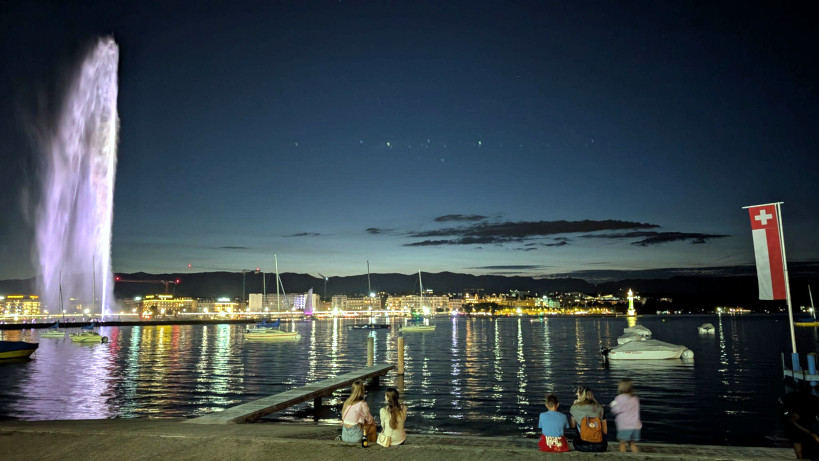
The nights are drawing in at INC 5.2 and we are rapidly running out of time to finalise and agreement Photo: Sam Winton
I will not address substantive discussions in this post, largely because these are now held almost exclusively behind closed doors. However, the procedure and working methods of the past 2 days do merit reflection. In the words of one delegate in Contact Group 3, ‘We keep having 90 minute discussions where we discuss what we should be discussing’. Notably, while contact groups have always agreed that further informal consultations are required, they have often had difficulty deciding which topic these should address:
- On Monday evening, Contact Group 1 Co-Chairs proposed to commence an Informal on Scope. This was opposed by the EU and others who were concerned about the lack of discussion of Article 6 (sustainable consumption and production), while other members wished to continue informal consultations on Articles 3 and 5. A lengthy discussion, both on the floor and then in a huddle, resulted in no agreed mandate for future informals for the group. Therefore groups of members agreed to hold informal informal discussions on all articles under the groups remit. As member-led proposals, informal informals require no mandate from the contact group. This effectively allowed the co-chairs to tell dissatisfied members to take up their arguments with the countries coordinating these informal informals, washing their hands of the issue. This solution is not entirely satisfactory but did allow the discussions to go ahead (though with predictably little progress) on Tuesday. However this disagreement highlighted the deep divisions among members.
- On Tuesday evening, a timeslot was available for an 8-10pm Informal for Contact Group 4. However in their 7pm meeting, the group was unable to agree which of the articles under their remit would benefit from further discussion. Therefore at 8.15pm, approximately 48 hours before the closure of this negotiation, and with 21 of the 24 articles under their remit still unresolved, the group concluded their work for the evening early with no agreed way forward.
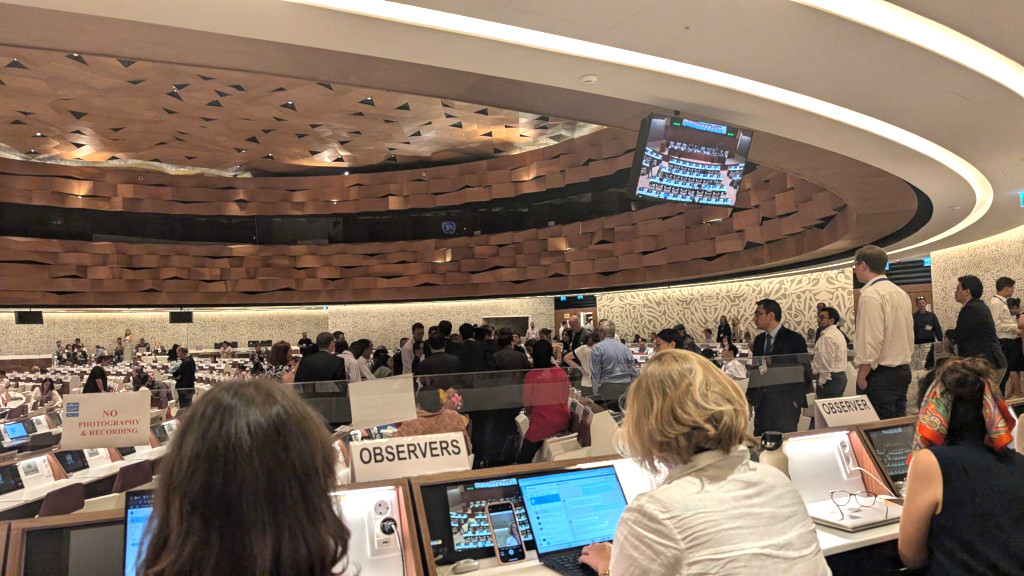
Delegates in Contact Group 1 huddle in an unsuccessful attempt to agree a mandate for ongoing informal consultations Photo: Sam Winton
The nights are once again becoming longer and as temperatures in Geneva are rising, so are tempers in the contact group rooms. Members are expressing clear frustrations with one member in Contact Group 3 stating that ‘it feels like we are spinning our wheels in the mud’. One member in Contact Group 1 on Monday evening objected to meetings continuing on controversial articles while all members were tired and, when another member complained about the continued ignorance of Article 6 (sustainable consumption and production), the co-chair misinterpreted the comments believing that they were personally being called ignorant and reminding members about the UN code of conduct. It is clear that the long sessions with much divergence and an overwhelming remaining workload are placing an unsustainable strain on all delegates.
This blog started with the welcome news of one article being approved for forwarding to plenary. However this small victory should be put into context. The article in question deals with withdrawal of parties from the treaty. This is a short article which uses text that is almost entirely standard among MEAs. The sole bracket to be resolved was whether parties would have to wait three years to withdraw as is standard practice in MEAs or two years as proposed by a single member. The importance of this disagreement is perhaps best illustrated by an exchange in which one member asked the proponent of this change to explain their reasoning for the alteration, only to be reminded by the co-chair that they were the proponent of the change. The moment caused plenty of amusement in the room as the member in question scrambled to remember why they had made the proposal. After consultations within the delegation and a short huddle with other members they were willing to agree to the standard time period. This process took nearly 30 minutes and if this is the time taken to resolve a single bracket which even the proponent had forgotten about, it begs the question how over 1000 further brackets can be resolved in the next 2 days.
Halfway through the second week of this INC session, frankly, I am confused. Despite Saturday’s stocktake acknowledging the obvious fact that the current working methods are not likely to deliver fast enough progress to review and agree the full text by this Thursday, negotiations on Monday and Tuesday have settled into an all too familiar pattern. The majority of our days are now taken up with closed door informal consultations with intermittent contact group meetings to report on current progress and agree a way forward for subsequent informal consultation. When reports back to contact groups are made they generally follow a simple formula: We have reviewed a couple of paragraphs of this article, we are seeing a constructive spirit but divergence remains, we therefore request further time for consultations. This time, which has been afforded to date, is quickly melting away in Geneva’s 37 degree heat and it will expire before we have got close to an agreement on most articles.
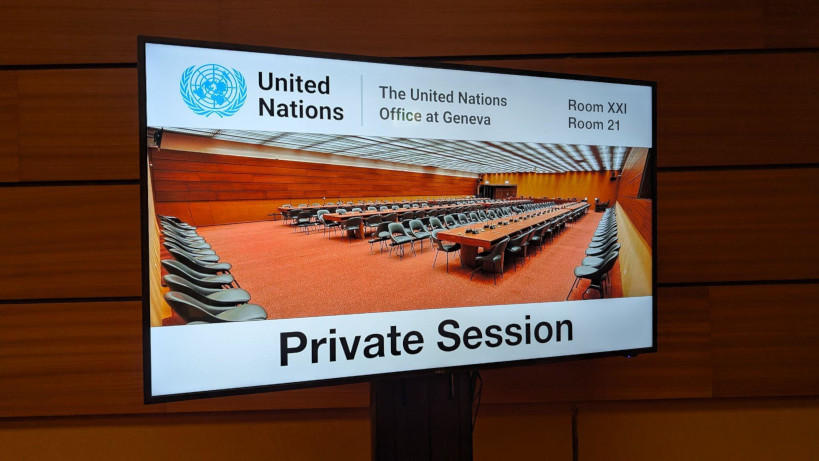
As we move into the second week of negotiations, substantive negotiations have moved almost entirely behind closed doors making it hard to judge if compromises are being made. However, the public statements we are receiving are not painting a positive picture Photo: Sam Winton
At the weekend I saw a few possible plans to accelerate progress:
- Capitulate and agree to a lowest common denominator treaty, abandoning any discussion of controversial articles and getting articles with convergence agreed. Certainly not desirable in my view.
- Switch gears and abandon trying to conduct detailed text negotiations on controversial articles. Complete work on the important procedural articles and forward many issues of substance to the COPs, effectively agreeing a framework. Not ideal, especially when considering the 30 years of paralysis in the UNFCCC but at least we would break free from this stalling INC process.
- Start voting on issues of divergence. To be clear, despite an interpretive statement in the rules of procedure recalling a lack of agreement on whether voting should occur, the text in Rule 38 is unbracketed and allows for decision making by two-thirds majority where consensus cannot be reached. However political will to force this through is lacking.
For those paying attention these are broadly the same options I was suggesting in the months between our meetings in Ottawa and Busan. However, we have done none of those things. We are continuing to attempt circular text discussions on controversial articles with no path to consensus. Despite some members pushing the chair to convene a plenary on Monday or Tuesday to resolve this deadlock, this has not occurred. While it is anticipated that a plenary may occur on Wednesday, this will surely be too late to change course and in an update to observers on Tuesday the Chair acknowledged that he is concerned that time is running out. One member in Contact Group 1 asked ‘How can we get from where we are to where we need to be?’ and the operative question in mine and fellow delegates’ heads is therefore, what are we trying to achieve here?
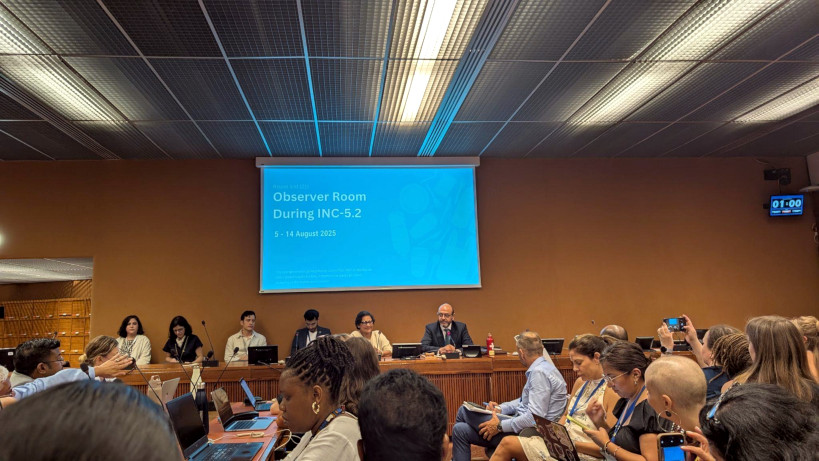
At an update for observers on Tuesday evening Ambassador Vayas conceded that he is becoming increasingly concerned that time may expire before an agreement is reached Photo: Sam Winton
My concluding thoughts in this blog will therefore reflect on the possible outcomes from the next two days. An increasing number of delegates I have spoken to over the last two days have expressed concern about a further extension to the process as this would extend beyond UNEA 7 in December where some members would undoubtedly attempt to renegotiate aspects of UNEA Resolution 5/14, the one positive guiding light in this process. Therefore it seems to me that we must attempt to get some kind of text agreed here, even with gaps, to be discussed further at future COPs (notably where non-parties usually would not have voting rights). While I am seeing evidence of some western high ambition countries bending, the Like-Minded Group are as rigid as ever and SIDS, especially Pacific SIDS are also showing no intention of abandoning their ambitious positions. I have absolutely no idea where a landing zone for consensus could come from in this context. Reports from late on Tuesday night suggest that the Chair is intending on introducing a new compromise text at some point on Wednesday. This could be a take it or leave it text with no brackets which the Chair will attempt to force through. Form would suggest it is more likely to be further bridging proposals riddled with brackets with little chance of consensus. As a fellow delegate said to me in my hotel elevator this evening, at this point we must wait and hope for a miracle.
BIO
I am a postgraduate researcher working for the Revolution Plastics Institute at the University of Portsmouth since its creation in 2020. In 2023 I commenced my PhD studies titled ‘To what extent has the structure and implementation of the INC process facilitated the development of an effective Global Plastics Treaty?’ at the University of Portsmouth and the University of Surrey. This research will focus on how the structure and implementation of the INC process impact the treaty’s outcome, consider how the inclusion of stakeholders in the process influences a fair and just treaty, and investigate the implications of the final text for members. With a background in environmental hazards and community preparedness, my main research focus is working with communities and a broad range of stakeholders to tackle environmental challenges. I have also worked with international organisations to create policies to tackle the global plastics problem and facilitate sustainable development.
